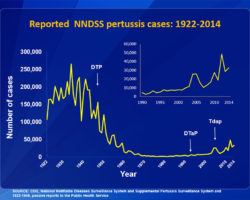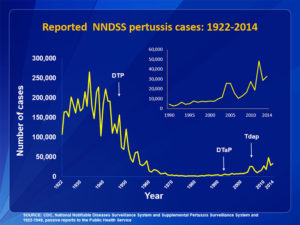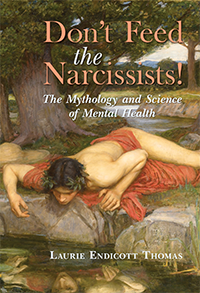Dr Jennifer Gunter is a physician who is board-certified in obstetrics/gynecology and in pain medicine. She has dedicated her medical career to relieving her patients’ suffering. She has even risked her own life by performing abortions, in a country where some abortion providers have been assassinated by anti-abortion terrorists. One might think that this would have earned Dr Gunter considerable prestige among feminists, as both an expert on women’s health and a champion of women’s rights. Yet Dr Gunter has come under fire for complaining that a lot of people are using the Internet to spread dangerous false information about health and medicine. In particular, she pointed out that the organization Our Bodies, Ourselves (formerly known as the Boston Women’s Health Collective) has occasionally given some ridiculously bad health advice, such as encouraging women to put yogurt or garlic cloves in their vagina. In response, Jennifer Block (a former editor for Our Bodies, Ourselves and for Ms Magazine) viciously attacked Dr Gunter in an op-ed that appeared on Scientific American’s website. [The op-ed itself was eventually retracted by Scientific American.]
Some Bad Advice From Our Bodies, Ourselves
Block claims that Dr Gunter is targeting Our Bodies, Ourselves because the book Our Bodies, Ourselves “was originally written in the 1970s, and not by doctors” [emphasis in original]. In reality, Dr Gunter was concerned because Our Bodies, Ourselves was still urging women to put garlic cloves or yogurt in their vagina. The advice to put garlic cloves or yogurt in one’s vagina was still on the Our Bodies, Ourselves website as of November 29, 2019, in an article that was published in October 2011 and revised on September 10, 2019.
Food Goes in the Mouth, Not in the Vagina
Dr Gunter tells us that the vagina is self-cleaning, and that one should not put food in it. Her reasoning makes a great deal of sense. Garlic cloves are often contaminated with soil bacteria, including the bacteria responsible for botulism. Putting a garlic clove in your vagina would give those bacteria the perfect environment to multiply and produce botulinum toxin. Thus, putting a garlic clove in your vagina could put you at risk for paralysis or even death. Similarly, yogurt does contain lactobacilli, and some lactobacilli are supposed to live in the vagina. However, yogurt does not necessarily contain the right kinds of lactobacilli. Also, any yogurt that contains live lactobacilli could contain other live bacteria. So a woman who puts garlic cloves or yogurt in her vagina could be running serious risks, in exchange for extremely questionable benefits.
A Parody of Feminism?
Block’s op-ed seems almost to be a parody of the romanticism that was embraced by some feminists in the 1970s. For example, Block snipes that “Gunter was a child in the 1970s, but surely she has read some history.” Block then went on to describe how women “took off their pants and looked at their own and each other’s cervices” and swapped home remedies: “they compared all this gathered wisdom to what men in white coats had been telling them and doing to them.” Block then went on to extol the “ideals of informed consent and participatory medicine” and the movement that “sent droves of women to medical school.” Yet Gunter was among the droves of women who went to medical school; Block was not. Gunter has not only looked at other people’s cervices, she has performed surgery on them. Gunter has risked her own life to give other women the chance to make their own decisions about pregnancy. This fact should give Gunter a degree of credibility and prestige that Black sorely lacks.
Tea-Tree Oil Could Disrupt the Endocrine System
Block does not understand that a lot of Dr Gunter’s advice is based on the concept of “better safe than sorry.” That is why Dr Gunter urges women to abstain completely from some unnecessary products, including alcoholic beverages and tea-tree oil, during pregnancy. Block dismisses the study on tea-tree oil as “an unpublished case report presented at a meeting with industry sponsors.” That is a gross misrepresentation that reveals how little Block knows about how science is done. In reality, the study was not a “case report,” which would be a story about something that happened to a particular person, perhaps for unknown reasons. Instead, the study was a study of human cells that were being grown in a laboratory under tightly controlled conditions. The study is not “unpublished”: its presentation at ENDO (the annual meeting of the Endocrine Society) is actually a form of publication. A formal article about the study was published in August 2019 in the Endocrine Society’s journal, The Journal of Clinical Endocrinology and Metabolism.
It is preposterous for Block to dismiss ENDO as “a meeting with industry sponsors.” The Endocrine Society is not an industry trade group. Rather, it is a professional society whose 18,000 members are physicians and scientists who study the endocrine system (i.e., the hormones). The Endocrine Society has safeguards in place to prevent industry from choosing which abstracts are accepted for presentation at ENDO. Furthermore, the study on tea-tree oil wasn’t done by a pharmaceutical company or by anyone with a commercial agenda. It was done by scientists who work for the National Institute of Environmental Health Sciences.
Lavender and Tea-Tree Oils Make Boys Grow Boobs
Scientists from the NIEHS already had compelling evidence that soaps, shampoos, or lotions that contain lavender oil or tea-tree oil have estrogen-like effects. Use of those products can cause gynecomastia, which means abnormal growth of the breasts in boys. The NIEHS researchers used standard laboratory methods to show that some of the compounds found naturally in lavender oil and tea-tree oil really do act like female hormones or suppress the effects of male hormones on human cells that are being grown in a laboratory. This study is part of the National Toxicology Program’s efforts to identify substances that disrupt the endocrine system and to assess what kinds of effects these substances are having on human beings and on wildlife. This is a big story—the kind a journalist should cover—but Block missed it because she does not know how science works.
Don’t Put Stones in Your Vagina
Dr Gunter has also warned women not to put “jade eggs” or other stones in their vagina. If you want to strengthen the muscles of your pelvic floor, do Kegel exercises instead. The stone itself could carry bacteria, such as the kind that causes toxic shock syndrome, which can be fatal. Also, a woman could injure herself while trying to remove a slippery polished stone from her vagina. Dr Gunter has treated similar injuries that resulted from women using sex toys.
Don’t Worry About Glyphosate in Tampons
Given Dr Gunter’s cautions about alcohol, lavender oil, tea-tree oil, and vaginal stones, you may be surprised to hear that Dr Gunter tells women not to worry about the trace amounts of glyphosate that might be found in tampons. Block feels that this reassurance is hypocritical. Block sneered, “No need for precaution, because there’s not enough research.” This attitude merely shows that Block herself is unaware of the enormous body of research about the safety of glyphosate. Ms Block’s attitude also suggests that she has poor math skills. The reported amount of glyphosate in tampons is extremely small. As Dr Gunter explains, using tampons for every single day of every period for 40 years would expose a woman to a total of 1 thousandth of a gram of glyphosate from the tampons. This amount really is too small to matter. So the glyphosate in tampons should be the least of your worries.
Don’t Steam Your Private Parts
Ms Block is outraged because Dr Gunter tells women not to steam their vulva (the external female genitalia). Ms Block feels that “vaginal steaming” is “about bringing comfort and blood flow to areas that have suffered trauma, disconnect, and abuse” and that it is a way to help women “regain sensation.” Dr Gunter is concerned that women might burn themselves with the hot water. In fact, there have been reports of women who burned their private parts while trying to steam them. However, Ms Block scoffs at Dr Gunter’s warning—“as if women can’t handle boiling water.” Yet the Shriner’s Hospital burn team has been warning people for decades that scalding-hot water, even hot tap water, can cause serious or even deadly burns. In one famous case, Stella Liebeck was badly burned by a cup of hot coffee that spilled in her lap. As a result, she required 8 days of hospitalization for skin grafting, followed by two years of additional treatments. Her case is described in the documentary Hot Coffee:
We Have No Safeguards Against Bad Journalism
Ms Block complains about some things that Dr Gunter supposedly has not written about. “Instead of taking shots at what’s in your fridge or nightstand, she could be using her platform to talk about, say, obstetric violence, the rising maternal death rate, the pelvic mesh disaster or the overuse of hysterectomies, to name a few trends more threatening to women’s health and lives than yogurt.” Not only is this criticism unfair, given that Dr. Gunter actually has addressed some of these things, but it shows that Ms Block completely misunderstands the particular gap that Dr Gunter is trying to fill.
Americans already have systems in place to deal with dangerous products and bad doctoring. The Food and Drug Administration regulates the marketing of medicines and medical devices. The state governments regulate medical practice within their borders. State governments issue professional licenses, and state governments can take those licenses away from bad practitioners. State courts allow patients who have been injured by doctors to sue for damages. The state can even prosecute and imprison doctors for committing crimes like assault, rape, or fraud. In contrast, we have absolutely no protections against bad medical journalism. We have no system in place to ensure that the medical advice that people spread through books and magazines or over the Internet is actually reliable.
Whom Should We Trust?
Both Dr Jennifer Gunter and Ms Jennifer Block have written books about the vagina. By writing her op-ed, Ms Block evidently wants to position herself as superior to Dr Gunter as a source of knowledge and wisdom about women’s health and as a champion of women’s rights. That’s a breathtaking display of narcissism, even in the age of Trump. It is astounding that Scientific American published Block’s op-ed, given that the piece shows Block’s obvious contempt for the scientific method and her fear and loathing of the scientific community. Block argues that “Doctors are not gods.” That’s certainly true, but the editors of women’s magazines are generally not even doctors. [Scientific American withdrew the op-ed with this note: “Editor’s note. The post that originally appeared here has been removed because we’ve determined that it doesn’t meet our editorial standards.” It was later amended to this note: “Editor’s Note: Because of lapses in Scientific American’s review and fact-checking process, the post that originally appeared here has been removed due to problems with sourcing and citations. We apologize to the author and our readers.” ]
Editors and Standards
Many thoughtful people share Dr Gunter’s concern that the Internet is being used to spread misinformation about health. This problem is mainly a lack of editorship. Ideally, a work about science or medicine would go through a scientific review before publication. The review process should prevent total nonsense from being published at all, and it should allow any defects in acceptable material to be corrected before publication. The review process that scientific publications use is not fool-proof. But much of the material that is published for the general public has not been reviewed by any scientist. As a result, the public is being given a lot of bad advice about matters of life and death.
We Need Honest Critiques of Medicine
Society really does need people to criticize persons and institutions, such as public figures and the medical profession. However, such critiques must be based on facts, not on rumors and guesses and biases and paranoia. One cannot really provide a useful critique unless one knows the facts and understands what those facts mean. To gain that understanding, you often have to take some of the hard, nerdy courses in college or even graduate or professional school. That’s why we need educated experts like physicians and scientists to educate the public. We also need editors and journalists who can simplify and clarify those experts’ messages. Healthcare reformers need to focus on real problems and work on finding real solutions. One of those real problems is the bad health advice that people are getting over the Internet. Dr Gunter has warned us about it. People from many walks of life will have to work together to solve it.





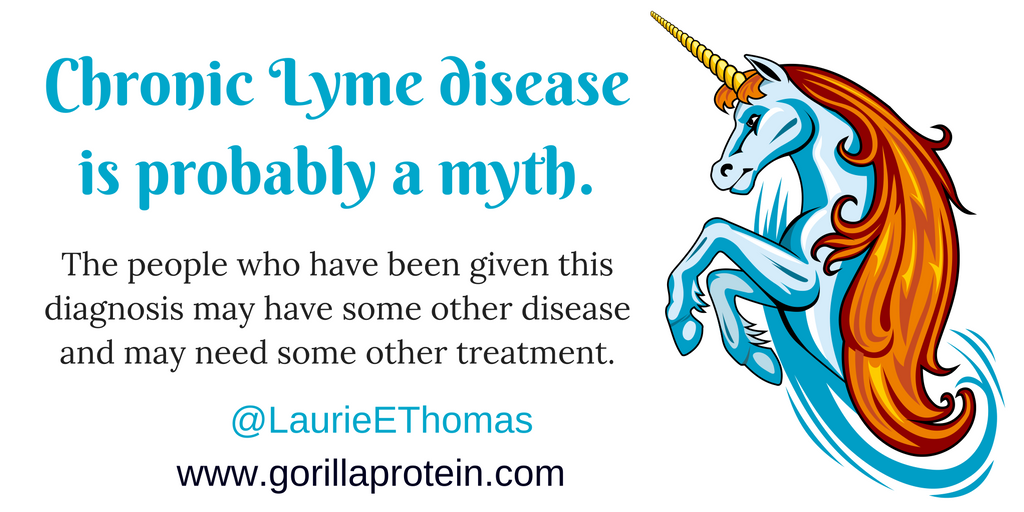


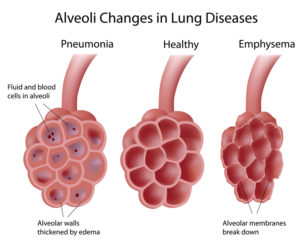





 A measles virus infection starts off as a respiratory infection. Thus, it starts off looking and feeling like a common cold. But then it takes a dangerous turn: it infects the immune system. Measles can cause long-lasting damage to the immune system. Recent studies have shown that a case of measles can increase a child’s risk of death from other infections for
A measles virus infection starts off as a respiratory infection. Thus, it starts off looking and feeling like a common cold. But then it takes a dangerous turn: it infects the immune system. Measles can cause long-lasting damage to the immune system. Recent studies have shown that a case of measles can increase a child’s risk of death from other infections for 